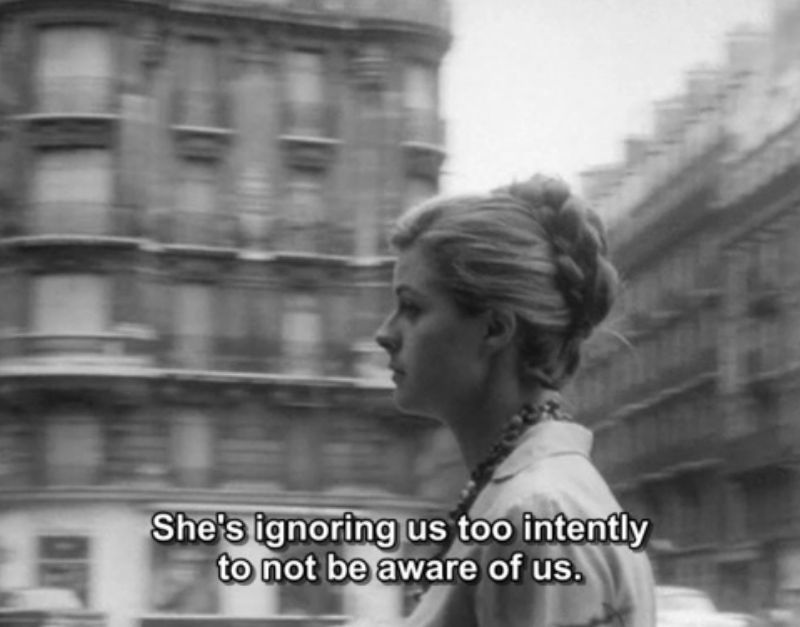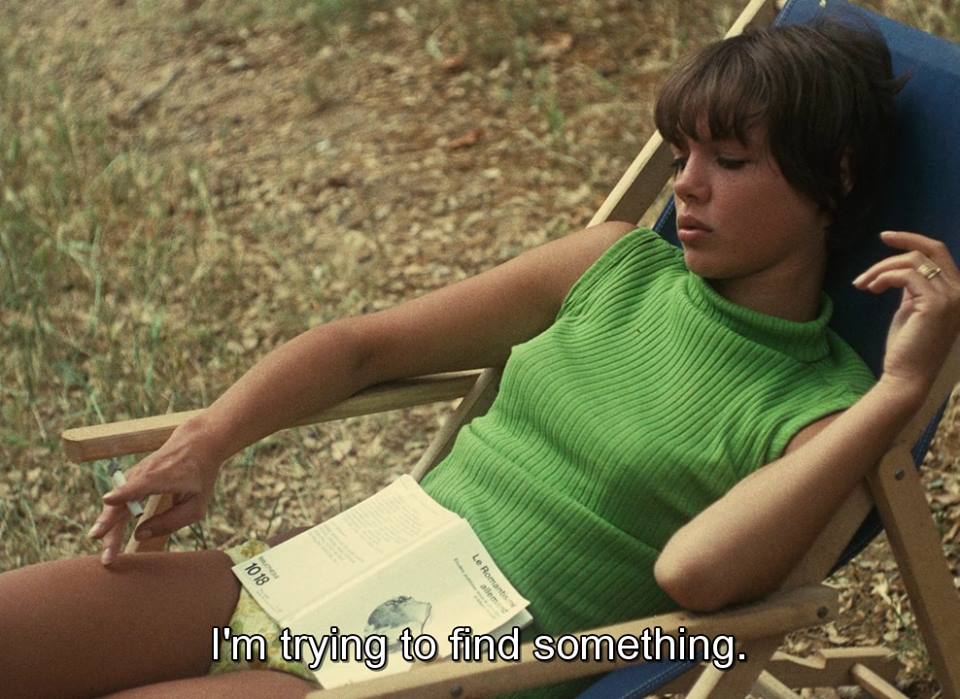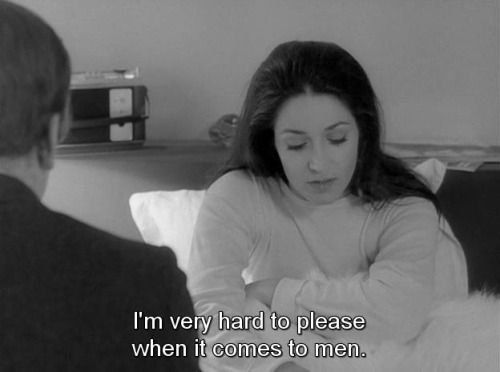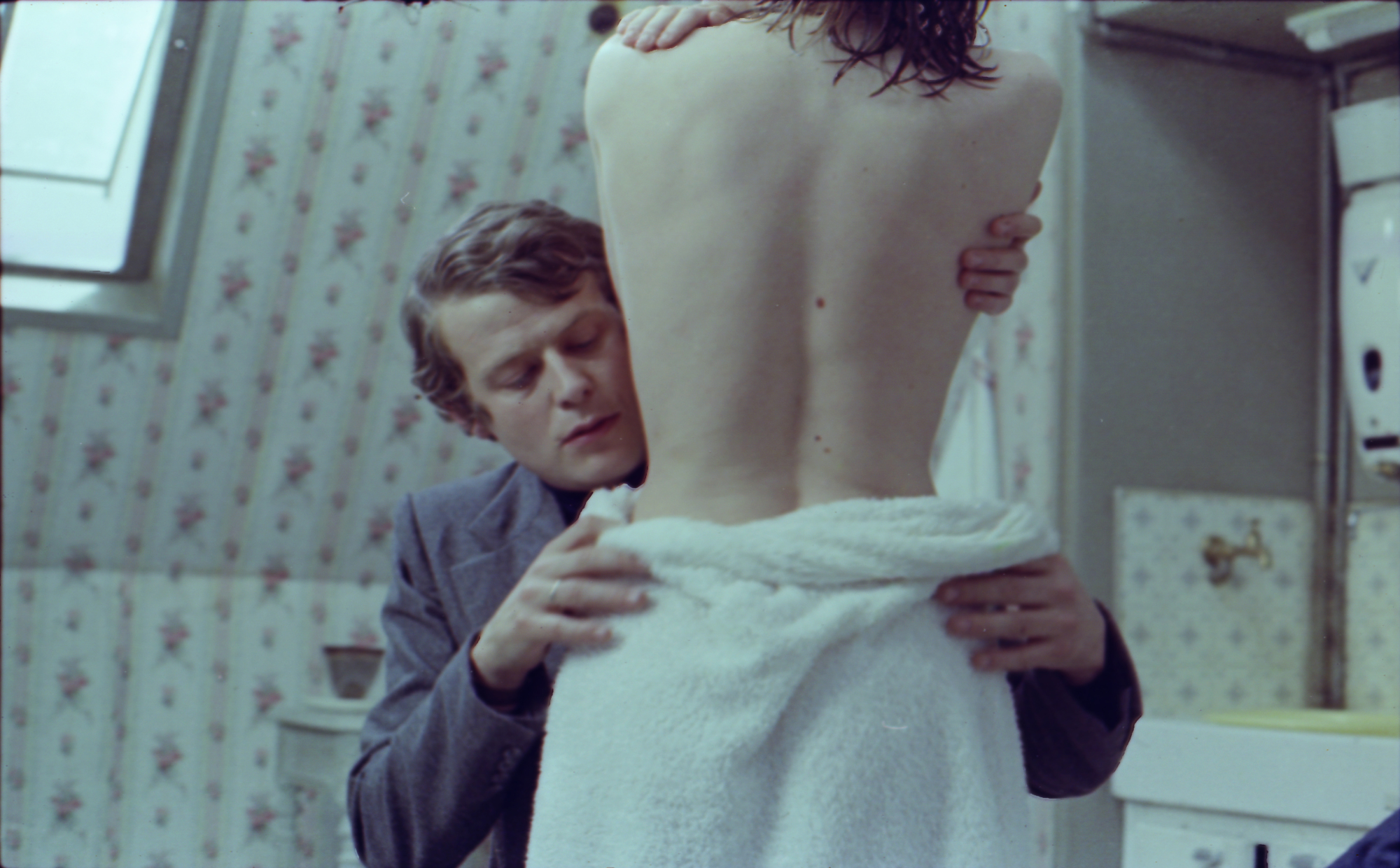by Eric Blume
 Last weekend marked the 100th birthday of one of France’s greatest directors, Eric Rohmer, and we here at TFE figured that a nice way to celebrate him would be a look back at the six-film series that launched his career, the Six Moral Tales, which were released between 1962 and 1972.
Last weekend marked the 100th birthday of one of France’s greatest directors, Eric Rohmer, and we here at TFE figured that a nice way to celebrate him would be a look back at the six-film series that launched his career, the Six Moral Tales, which were released between 1962 and 1972.
These films basically have the same plot: a man obsessed or in love with one girl finds himself distracted by another woman, only to return to the first girl. Rohmer uses this framework to examine the stunted male psyche, the rationalizations of behavior, and the mystery of love...
These films are both dated and timeless, tricky to watch in this cultural climate, as the men make all the decisions here. But it’s exactly within this context that the films hold a deep fascination.

Rohmer purposefully puts us in a situation in these films where the female character we see the most and identify with is cast aside, or has an unknown resolution. We’re rarely “happy” to see the reunion with the original woman, because we’ve barely seen her, or we don’t know her. Often, these films are about how the lead male character makes his choice exactly because he can’t handle being truly challenged by the second woman. These men all hold to their own “moral code” which allows them to claim integrity while their actions are selfish and feckless.
The first two films are shorts. The Bakery Girl of Monceau, at 23 minutes, is the perfect entrée into the Rohmer world, and plays incredibly well. Our lead man is played by Barbet Schroeder, who produced all of Rohmer’s early films, and of course went onto his own Oscar nomination for directing Reversal of Fortune many years later. The second, Suzanne’s Career, feels overextended at just under an hour. This film feels plodding, and Rohmer was still at this point working with friends of Schroeder’s rather than trained actors, so there’s not much magnetism in what we’re seeing, and you feel the schematic.

The third film in the series, La Collectionneuse, feels like the transitional movie in the series. Rohmer’s characters here feel more fleshed out, but once again, he doesn’t have great actors who are able to fill in the gaps of the character’s behaviors, which are quicksilver transitions full of gameplay and push-and-pull. The whole film doesn’t quite land, but you can see Rohmer start to explore the possibilities of the camera here, and conceits that felt more on the literary side begin to find a cinematic equivalent here.

The fourth film, 1969’s My Night at Maud’s, was the breakthrough for Rohmer: it was even nominated for an Oscar for Best Original Screenplay in addition to Best Foreign Film (it lost to Costa-Gavras’ great Z, by the way). This film basically serves as a model for what Americans began to think of as a “French film”: intellectual characters having long discussions about ideas, from religion to fidelity to identity. The influence of this film can’t be underestimated. Rohmer was unafraid to hold an audience with little more than long, sharply-written scenes between two or three actors playing the love game. At the center of Maud is a thirty-minute set piece between the two main characters that’s jammed with seduction, resistance, hesitance, and false justification. It works because finally Rohmer had two actors, Jean-Louis Trintignant and Francoise Fabian, who deeply understood subtext and took the film beyond a series of ideas and into something fully flesh-and-blood: Trintignant captures all of his character’s pompous contradictions, and Fabian creates Rohmer’s first fully-drawn female character, complete with a breezy humor that shows she’s nobody’s fool.

Rohmer’s fifth chapter, Claire’s Knee, is arguably the most famous but also his most problematic. It’s hard not to get the ick from this film today, as it’s tough to watch the lead character (Jean-Claude Brialy) seduce a 16-year-old, get weirdly handsy with an old flame, and emotionally manipulate another young girl while he’s a month away from his marriage. While the issue of this kind of “morality” is EXACTLY what Rohmer is trying to address, how men rationalize atrocious behavior, this is the one film that seems to cross the line by contemporary standards. The lead character (and actor) just feels…gross. When the eponymous knee is touched by our lead character, it no longer feels poetic or erotic or shocking, but just rapey. I fully “get” what the movie is up to, but I’d argue it doesn’t play very well nowadays.

Male privilege is once again the subject in the final tale, 1972’s Love in the Afternoon. Rohmer pushes the envelope farther here, as it’s his first male protagonist to be married, and his series of “moral compromises” throughout the picture culminate in a powerful winner of a surprise ending, as Rohmer shows us the limitations of how men think. This film’s female protagonist, played by model Zouzou in full foxy hippie mode, has a refreshingly dangerous edge that puts Rohmer’s issues in a slightly new light. The movie is also a howl to watch as it’s a 1970’s time capsule of Paris in terms of costumes, locations, and typewriters.
In these six films, Rohmer set up the universe for all of his films to come. As he grew as an artist, he expanded beyond this almost unrelenting examination of male privilege, and his female characters began to have lives of their own outside of the male gaze. He also gained a greater lightness in his approach in his later films. These six films are remarkably subtle, almost to the point of being misunderstood as sexist or misogynist. But Rohmer’s target was absolutely the rationalizations that men make to get through life and justify their actions, and how words are used as armor, castle, and moat to keep out the actual reality beyond the walls. It’s easy to see why Eric Rohmer has long been considered one of the cinema’s greatest filmmakers. If you only have time for one of these, catch My Night at Maud’s, which despite a bit of tedious Catholicism, makes its points with the greatest skill, and leaves the longest linger.
These films are currently streaming on the Criterion Channel